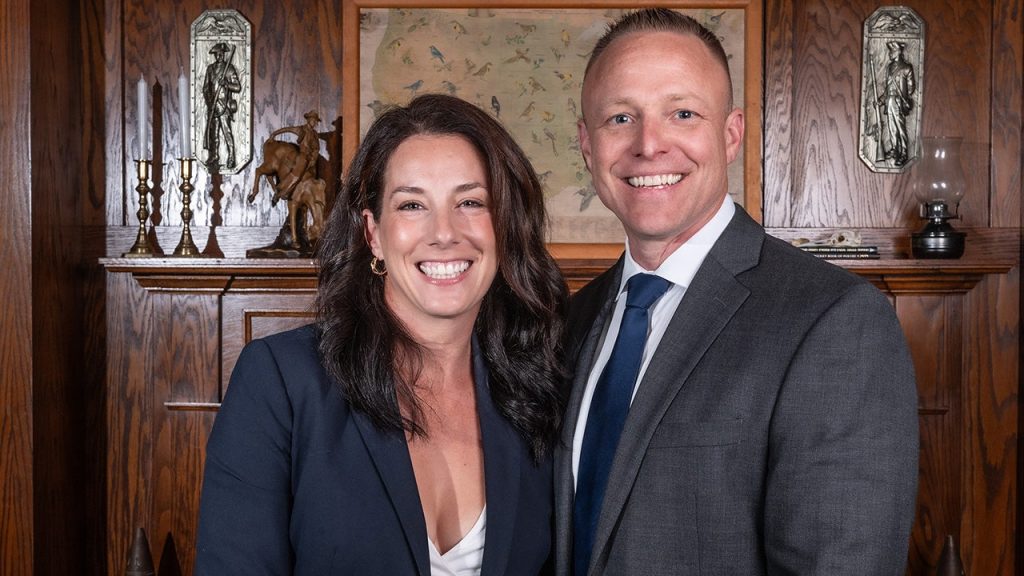The FBI’s Whistleblower Problem: How Internal Review Processes Silence Those Who Speak Up
Valentine Fertitta’s story represents what many consider a troubling pattern within the FBI – the use of internal processes to discourage and punish whistleblowers. What began as a workplace dispute in 2021 evolved into a complex whistleblower case with significant implications for federal employees. After returning from overseas deployment with serious injuries that limited his work capacity, Fertitta faced pushback from a statistics-obsessed supervisor. When the FBI blocked him from promotion consideration, Fertitta believed this violated both FBI policies and federal employment law protecting injured veterans. His decision to file a whistleblower complaint marked the beginning of what his wife Emily describes as a systematic campaign of retaliation, including his first-ever negative performance review, denial of training opportunities, and invasive requests for medical records.
The situation escalated dramatically when Fertitta appealed his case to the Office of Attorney Recruitment and Management (OARM), the FBI’s internal body responsible for protecting whistleblowers from retaliation. Within weeks of initiating this process, the FBI opened an evaluation of his security clearance – timing that the family’s attorney, Matthew Crotty, finds highly suspicious. “The way the FBI can essentially fire you without saying ‘you’re fired’ is to just revoke your clearance,” Crotty explained. This review process carries significant consequences, including suspension of pay during the investigation period. The pressure extended to Emily Fertitta as well, who claims the bureau requested she testify against her husband in a three-day interview without allowing her legal representation. Facing this untenable situation, Emily ultimately resigned from the agency, while her husband’s security clearance dispute continues unresolved.
The structural problem lies in the extensive powers granted to the FBI regarding employee security clearances. The Supreme Court has given the bureau broad authority in this area, with minimal exceptions. This means FBI agents have virtually no external recourse to appeal clearance disputes during their employment. According to Crotty, this extends to many of the FBI’s internal review measures, creating a system where loyalty is paramount and challenging the institution through official channels invites retaliation. “It doesn’t matter who’s in the White House. It’s a structural FBI thing. It’s been going on since Hoover,” Crotty said, referring to the FBI’s founding director. “This is an agency that makes loyalty part and parcel to its core – and if you go against it by trying any of these internal processes – [they] are going to get back at you.”
The statistics on whistleblower complaints support this concerning picture. Public reporting from the FBI shows that over the past decade, OARM received 107 complaints from whistleblowers alleging retaliation. Of those, the office identified only nine cases of actual retaliation – a strikingly low rate that raises questions about the effectiveness of internal oversight mechanisms. Emily Fertitta believes this reflects a systemic issue affecting many employees who lack the ability or resources to speak up. “This is much bigger than Val and Emily. It applies to so many other people who just don’t have the ability to speak up,” she stated. She expressed disappointment with the Biden administration’s handling of these issues and hopes that the incoming Trump administration will follow through on promises of governmental reform.
Crotty suggests a straightforward legislative solution that wouldn’t burden taxpayers: allowing FBI reservists to pursue claims in federal court, similar to private sector employees. “Congress could fix this without costing the taxpayer a dime by saying hey, if you’re a reservist at the FBI, you can go to federal court – just like an Amazon worker can – you can make that claim before a federal jury in federal court. That’s what needs to change,” he argued. The attorney believes that financial consequences would be the most effective catalyst for institutional change. “Having a couple of jury verdicts that nail the FBI on retaliation; once the FBI starts cutting checks for millions of dollars in jury verdicts, that’s how stuff gets fixed,” he explained.
The Fertitta family currently has a civil case pending against the FBI, though proceedings face delays due to the ongoing internal deliberations regarding Valentine’s security clearance. Their story highlights a critical tension between national security imperatives and employee protections within federal law enforcement. For whistleblowers like Fertitta, coming forward with concerns about misconduct or policy violations can lead to career-ending consequences, creating a chilling effect throughout the agency. As debates about government accountability and transparency continue, cases like this raise important questions about how institutions tasked with upholding justice handle internal dissent. The FBI declined to comment on the Fertitta case, leaving many of these questions unanswered as the family continues their legal battle against one of America’s most powerful law enforcement agencies.


